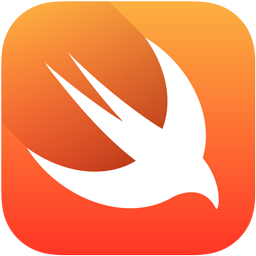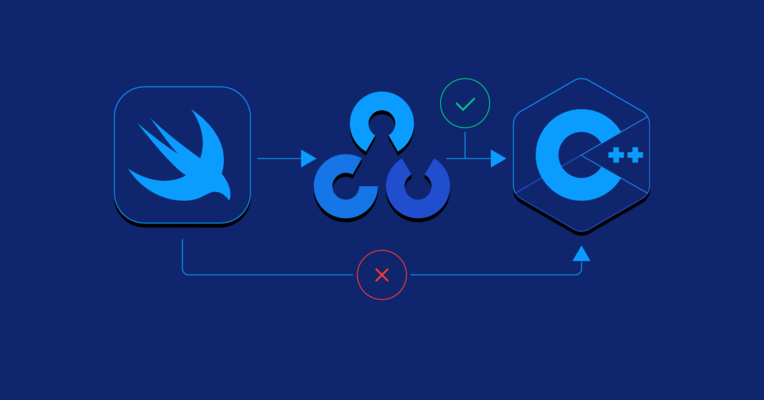The Demand for Swift Developers Is at an All-time High
Demand for Swift programmers, especially in app development company settings, has significantly increased in recent years. Swift is a general-purpose language originally developed by Apple for use with its platforms such as iOS and macOS. With Apple mobile technologies being market favorites—and the ecosystem of other Apple products such as Apple TV, Apple Watch, and macOS-based applications expanding—there is a greater need for programmers who specialize in Swift.
Swift is an excellent language for modern application development due to its focus on design processes, the attention to detail it allows dedicated developers to maintain, and its high security level.
Mobile applications are in great demand across all industries, and most companies are in need of Swift talent to meet business needs and provide functional mobile technologies to their customers. The language is designed to work with iPads, iPhones, and all other Apple devices and to be fully compatible with Cocoa and Cocoa Touch frameworks. The supply of skilled Swift app developers is therefore limited. With the growing need for feature-rich applications, hiring managers and technical recruiters should know how to find top Swift developers who are a good fit for their dedicated development team.
Although Swift development is a relatively new field, there is already a large community of dedicated developers who are considered to be Swift experts. However, the difference between a good software engineer and a great one is their ability to adapt, learn, and keep up to date with innovation and new systems. As Swift faces an increasingly bright future, a great developer has to be on top of the evolutionary curve all the time. Finding such a talent to hire is not an easy task. This guide aims to show you an efficient hiring process for finding and evaluating the talent you seek to bring your project to life.
What Attributes Distinguish Quality Swift Developers From Others?
Experienced developers are skilled at designing, building, and maintaining applications in the iOS ecosystem, as well as macOS, tvOS, and watchOS. In general, they should possess high-level technical skills that encompass the multiple stages of software development processes. In addition to their technical capabilities, the most senior developers should demonstrate leadership skills. Here are the key attributes to look for when recruiting prospective Swift experts.
Swift Language Expertise
Expert Swift programmers should not only be proficient in the basic data structure and syntax of the language, but should also be deeply aware of best practices in Swift development, performance optimization, and memory management. Knowledge of concurrency models, such as Grand Central Dispatch, for multithreading and asynchronous task management is also an important technical skill that denotes high-quality Swift developers.
Deep Knowledge of iOS SDK
A good developer will have experience with the main components of the iOS Software Development Kit, a collection of libraries, frameworks, and tools for iOS development. Some of the most important components include frameworks such as UIKit, MapKit, Foundation, and Core Data, as well as Xcode, Apple’s integrated development environment.
Understanding of Structural Design Patterns and Architectural Principles
An skilled developer, especially a senior, will have a good grasp of architectural principles. This is a particularly important skill to have when designing an app from scratch, but it is also crucial for a developer to know about design patterns when faced with structural issues that may arise during the development process. Depending on your needs, you might want to look for Swift talent that is knowledgeable of architectural patterns such as Model-View-Controller (MVC), Model-View-ViewModel (MVVM), and structural design patterns such as Observer, Singleton, Decorator, and Factory.
Great Testing Skills
A surefire way to spot unqualified developers is asking them whether they embrace testing. Not testing is not an option. No matter the skill level, a good developer will always take testing as seriously as they take coding. Testing is an integral and crucial part of software development processes, and it is paramount to always make sure that each part of your application works seamlessly and as intended. Some development teams even embrace test-driven development, where the testing suite is built in advance, before the developers have written a line of code. If your development team embraces this philosophy, finding an expert developer who is not afraid of testing is even more important.
Communication Skills
Any professional developer you hire should have good communication abilities and soft skills and be free from language barriers. This is crucial for good communication within the team and building a good rapport with stakeholders. You also want to strive to hire a team player who is open to feedback and invests in their own professional development, staying up to date with industry trends.
How Can You Identify the Ideal Swift Developer for You?
Before finding the right developer for your project and Swift development team, you need to define your project’s needs, budget, and status. What technology stack should your prospective developer have? Is your project already ongoing, or are you planning to build an application from scratch? Are you looking for developers to tackle large-size projects or smaller applications? What sort of business goals are you aiming to reach?
Once the company’s needs are clear, you can then focus on the specific skills that the Swift specialist you hire will need to have.
Assessing a Swift Developer’s Years of Experience
Not all projects will need the same level of expertise. In order to meet project requirements and goals, you will need to decide whether to look for a seasoned professional or whether your team could benefit from the addition of a more junior developer.
-
Junior developers should have a good grasp of the core technologies used in iOS development. Naturally, they should be proficient in the basic data types, syntax, fundamental control flow structures like control transfer statements, and other core technologies of Swift. However, a professional junior developer will also have a good overall knowledge of other tools that belong to the iOS tech stack, such as UIKit and Xcode. A solid grasp of networking principles is also important. As a project manager, you should consider hiring a junior Swift developer if your project does not have a need for a deep restructuring or big architectural changes, as a junior might struggle with building projects from scratch. Hiring a junior developer can be a good and cost-effective solution if you already work with a dedicated software development team where other more senior Swift talent can be tasked with further training. A junior developer tends to be a more affordable option initially, due to lower rates. However, you should keep in mind that, if you want to hire experts with less experience, this lack of seniority might come with later additional costs, with potential delays and issues arising more easily.
-
Senior developers, on the other hand, will have advanced technical skills and excellent knowledge of the tech stack used in iOS development. The iOS ecosystem should have no secrets for the right senior Swift developer. They should have a deep understanding of the Swift programming language, from basic data types and protocols to memory management and performance optimization techniques. Furthermore, a senior developer should be able to design software applications with a focus on code architecture and have experience in architectural patterns such as VIPER (View, Interactor, Presenter, Entity and Router), MVC, MVVM, and MVP (Model-View-Presenter). The best Swift developers will also take great care to ensure code quality and code reusability to guarantee both nimbleness and longevity (as in, avoid creating gnarly legacy code) for the application they are building. Senior developers also mentor team members and conduct code reviews, improving the team’s productivity.
Complementary Technology Skills for Swift Developers
Additional and advanced technologies that you might want your prospective expert developers to have depend on project requirements. But here are some technologies to consider:
Core ML: If you are eager to integrate AI into mobile technologies, and your application may benefit from the inclusion of AI features, you might be interested in developers with experience in Core ML, Apple’s machine learning framework. It allows developers to integrate AI-adjacent features, such as natural language processing and image recognition.
Combine Framework: This is Apple’s framework, built to facilitate reactive programming in Swift. Its declarative Swift API allows for seamless processing of asynchronous events, as well as managing the flow of data.
ARKit: If engaging experiences with augmented reality is what you are after, this Apple AR framework can help developers create immersive experiences for your applications. Many gaming experiences are developed using this framework.
Firebase SDK: iOS applications across several versatile industries, including the healthcare industry, can benefit from using this Google mobile development platform when integrating back-end services. Firebase offers out-of-the-box back-end solutions that can streamline your app development processes and reduce recruitment costs.
Security basics: Depending on project needs, a developer should be aware of the risks of security vulnerabilities, especially when integrating third-party libraries in the application at hand, or interacting with external APIs. This is crucial to safeguard user data and application integrity.
Swift is designed to work with Apple devices. If your project requires cross-platform compatibility, such as with Android devices, open-source frameworks and libraries such as Flutter and React Native are good complementary skills. Additionally, your app will likely connect to a back end, in which case languages such as Python, Java, or Node.js are highly beneficial. For developing user interfaces that render in a browser, JavaScript-based frameworks and libraries like Angular, React, and Vue.js are valuable skills.
What Are the Most Important Swift Developer Interview Questions?
Creating your Swift development “dream team” is not easy, but it becomes considerably easier when you are armed with the right set of questions to test a candidate’s abilities. During the interview process, it is important to ask highly technical questions to test the developer’s skills. However, a good candidate will also be able to step back and see the big picture, and you want to make sure to look for that as well. Here are some questions that are going to help you identify the perfect fit for your dedicated team.
Describe Swift. What kind of language is it? What are its main perks?
Swift is a compiling language whose source code is translated to machine code. It’s fully compatible with Objective-C code, and with Apple’s Cocoa framework. By open-sourcing the language, Apple made its vision clear that Swift is to be much more than only a language for app development. New frameworks, like Perfect, are first attempts to make Swift a server side language too. The result will be that Swift developers and full-stack developers will have the power to create client- and server-side applications using the same language.
A solid candidate will know that some of Swift’s main advantages include:
- Optional types, which make applications crash-resistant
- Built-in error handling
- Closures
- Higher speed compared to other languages
- Type-safe language
- Support for pattern matching
Explain the main differences between classes and structures in Swift programming.
Classes and structures are the very basic building blocks for the majority of programming languages. However, there is a difference between them. To leverage them fully in Swift, we need to be aware of all the possibilities they offer. There are certain principles every developer should know and adhere to.
Let’s start with the attributes that classes and structures have in common:
- Both conform to protocols to standardize functionality to a particular purpose, the interface.
- Both can extend their functionality to add additional methods without modifying the original class or structure.
However, more important than knowing what they have in common is to know how they differ:
- Classes are reference types—they are not copied when they are assigned to a different property, nor when they are being passed to a function. Furthermore, reference types have identity, which means you can verify whether the variables refer to the same instance using the === operator.
- Structures are value types, which have no identity. If you assign a value type to a variable, you are actually copying the data, not creating a new reference to it. Because of these characteristics, operations that involve value types can be faster.
- Class instances are allocated on the heap, while structure instances are on the stack.
- Structures do not support inheritance.
- Structures provide default initializers for all properties that don’t have a default value.
Understanding these concepts is paramount for successful macOS and iOS app development in Swift. They dictate how data is handled, used, accessed, and extended within your codebase.
What are the main differences between SwiftUI and UIKit?
SwiftUI is a framework that simplifies UI development, thanks to its reactive approach. A skilled developer should be aware of its best use cases: building simple UIs, quick prototyping, and ensuring cross-platform compatibility. On the other hand, UIKit allows for more in-depth UI customization, not to mention control over its elements. Developers should know it is best suited when building complex UIs, and/or when your project requires more customization.
Explain generics in Swift.
Complex Swift applications require clean code without any duplication. Here, generics come in handy as they can help us to avoid unnecessary duplication. In general, generics are considered as one of the most sophisticated features of Swift, and they should be used as much as possible. They enable developers to write classes and methods without specifying the types they use. Swift uses generics internally wherever it is possible.
Let’s have a look at one of the best examples, arrays, as they can store any type. In our example, we will implement a simple data structure, Queue, to demonstrate how powerful and useful generics can be:
class Queue<T> {
private var data = [T]()
func enqueue(item: T) {
data.append(item)
}
func dequeue() -> T? {
return data.count == 0 ? nil : data.removeFirst()
}
}
let q = Queue<Int>()
Here, we removed the need to create Queue for other types that we would use in the application later. Our Queue can contain any type, and we were able to define it in one place. It saved us a lot of time that would be otherwise spent on setting the Queue each time later.
What is optional chaining? Can you give me an example of how it works?
In Swift development, optional chaining is a way to call and query methods, properties, and subscripts safely on an optional that might be nil. If the optional contains a value, the call succeeds; otherwise, it returns nil. This helps avoid runtime errors, which is a great advantage.
Here is a simple code snippet that presents an example of optional chaining. The candidate should be able to recreate a similar code block if given the option to find out the title of a book in a bookshelf via optional chaining. Alternatively, you can present this code block to the candidate and ask what they think the output would be. The output is: “There is no such book in my bookshelf.”
class Bookshelf {
var book: Book?
}
class Book {
var title: String
init(title: String) {
self.title = title
}
}
let myBookshelf = Bookshelf()
// Here we are using optional chaining to access the title property of the book
if let bookTitle = myBookshelf.book?.title {
print("The book in my bookshelf is titled \(bookTitle).")
} else {
print("There is no such book in my bookshelf.")
}
Tell me about a previous iOS project you worked on. How did you approach building complex features?
This is a more generic question that can help you see how your candidate sees the big picture when faced with a project in its entirety. A skilled candidate should know how to approach building a complex feature from start to finish. They would begin by discussing the project scope and needs with project management and the dedicated team, defining priorities and technical approaches. Afterward, they would design the needed feature(s), focusing on architectural needs of the application and the tools best suited for the job. Technology selection is an important part of this process, as is integration: not all components work for every application, and some are more suited to work in combination with others. Finally, what follows is implementation and testing of the feature.
Do not forget to ask the candidate how they would handle debugging when issues arise and the code does not work as intended. A skilled developer would know how to navigate blocks and problems with a proactive attitude and not succumb to stress, especially under tight deadlines.
Ultimately, application maintenance and performance optimization follow. Once the application is done, it is paramount that the developer knows how to keep it running smoothly and focuses on improving performance for end users.
Why Do Companies Hire Swift Developers?
Finding the right candidate for your development project can be difficult. Professionals offering Swift development services are easy to find, but identifying the real experts within the talent pool is the hard part. You should aim to hire developers that show great technical skills and expertise, but who are also able to be amazing team players.
Swift development requires deep knowledge of syntax and basic data structures as well as an understanding of best practices in software and architectural design. Look for candidates with a proven track record in building high-performance iOS apps using Swift and related core technologies, working in remote and/or diverse teams.
Businesses, especially startups, aim to hire dedicated Swift developers to utilize their expertise in crafting seamless user experiences (UX) across all iOS platforms. These developers play a fundamental role in building intuitive interfaces and optimizing app performance. Their knowledge of Swift supports code quality and contributes to the creation of beautiful applications providing smooth and beautiful user experiences, a factor that is critical in these competitive app markets.
This guide is here to assist you and your team in identifying key attributes of expert developers and tailoring a successful interview process to find the perfect fit for your team.




























